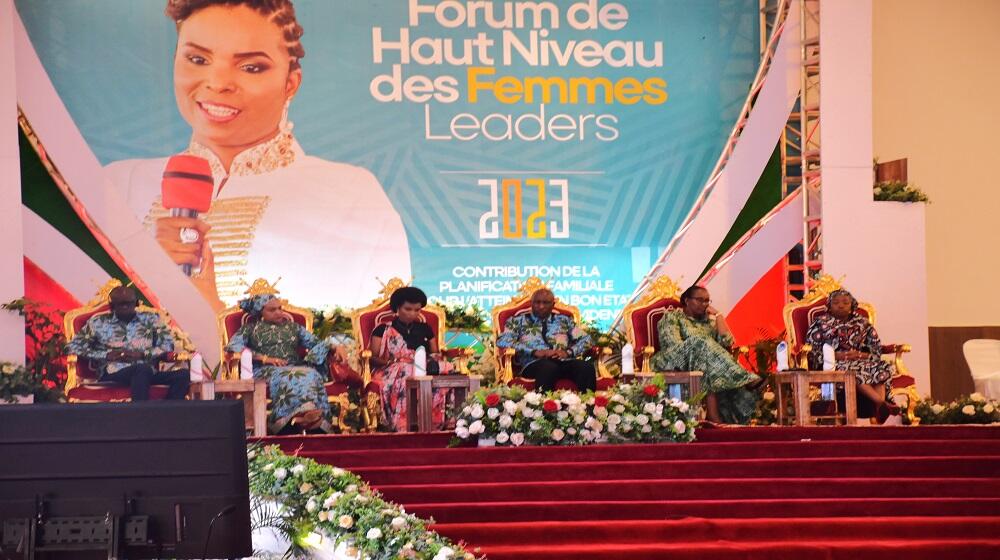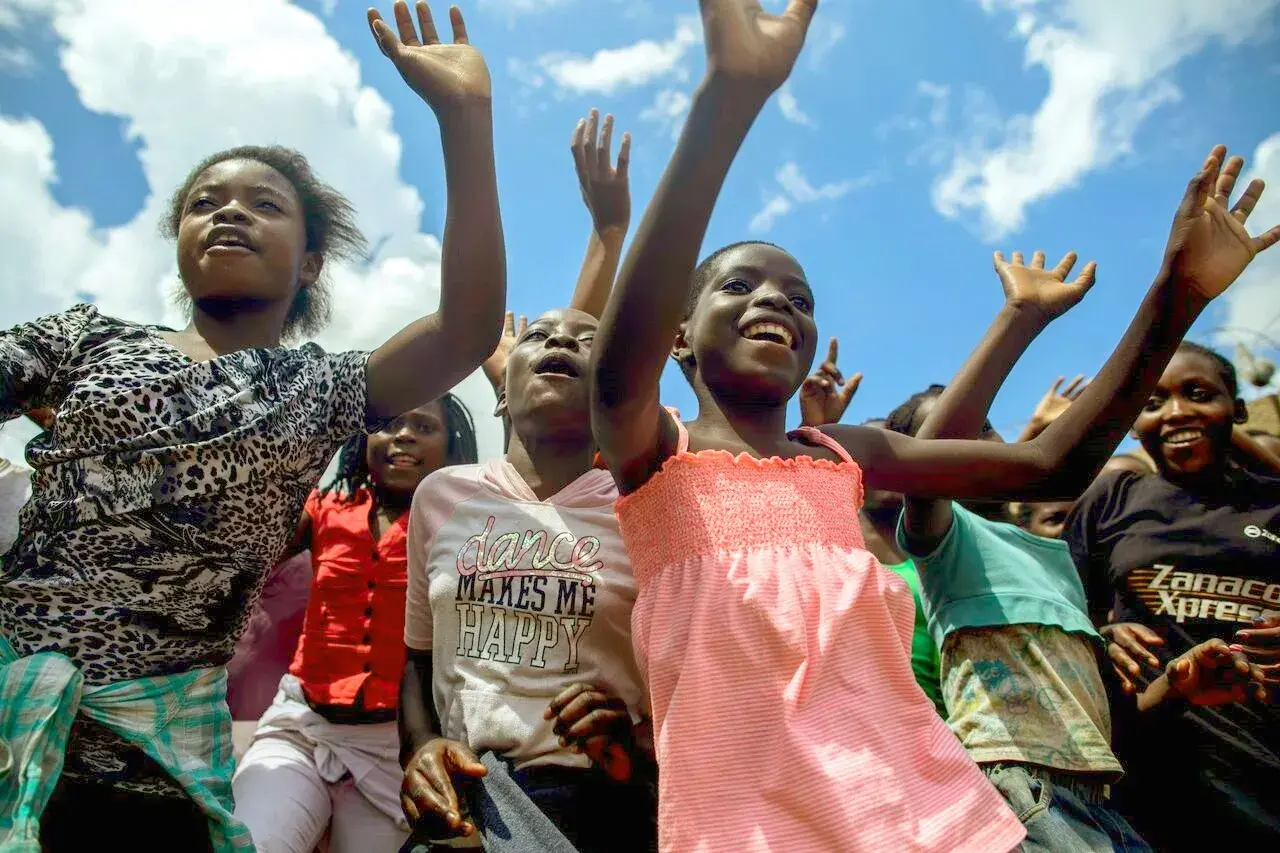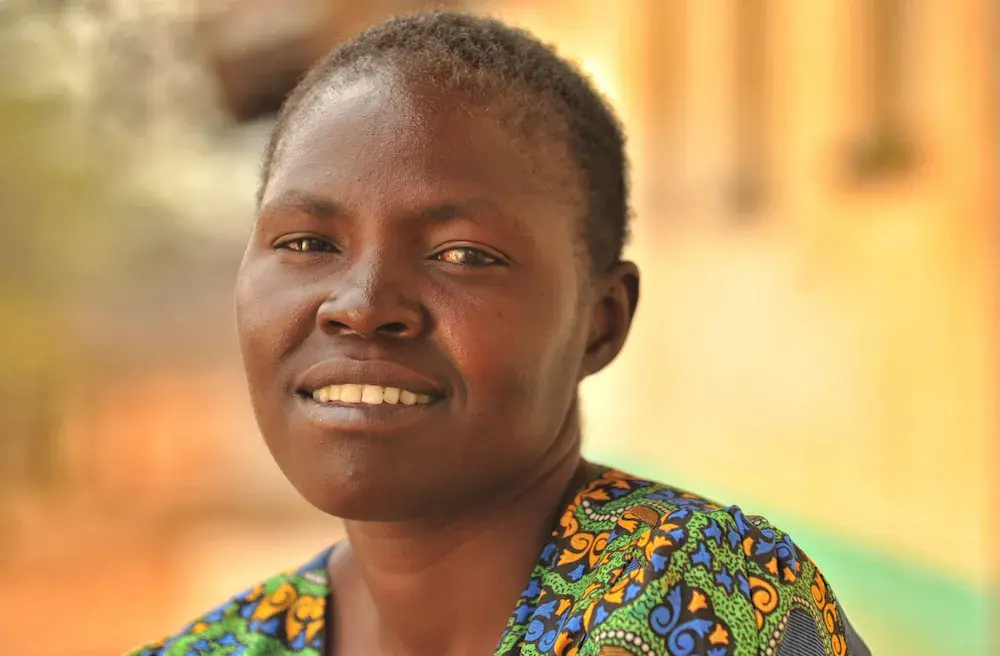"It's high time we talked about it seriously..."; "It's very important that we talk about it, but these awareness-raising campaigns should be aimed even more at younger people"; "There are a lot of land conflicts in households, so what can we do..?" These are just some of the discussions that took place over 3 intense days between men and women gathered at the Kiriri Presidential Palace in Bujumbura. Indeed, from October 09 to 11, 2023, the High-Level Forum of Women Leaders took place there, organized by HE Angéline Ndayishimiye, the First Lady of the Republic of Burundi, through the First Lady's Office for Development (OPDD Burundi).
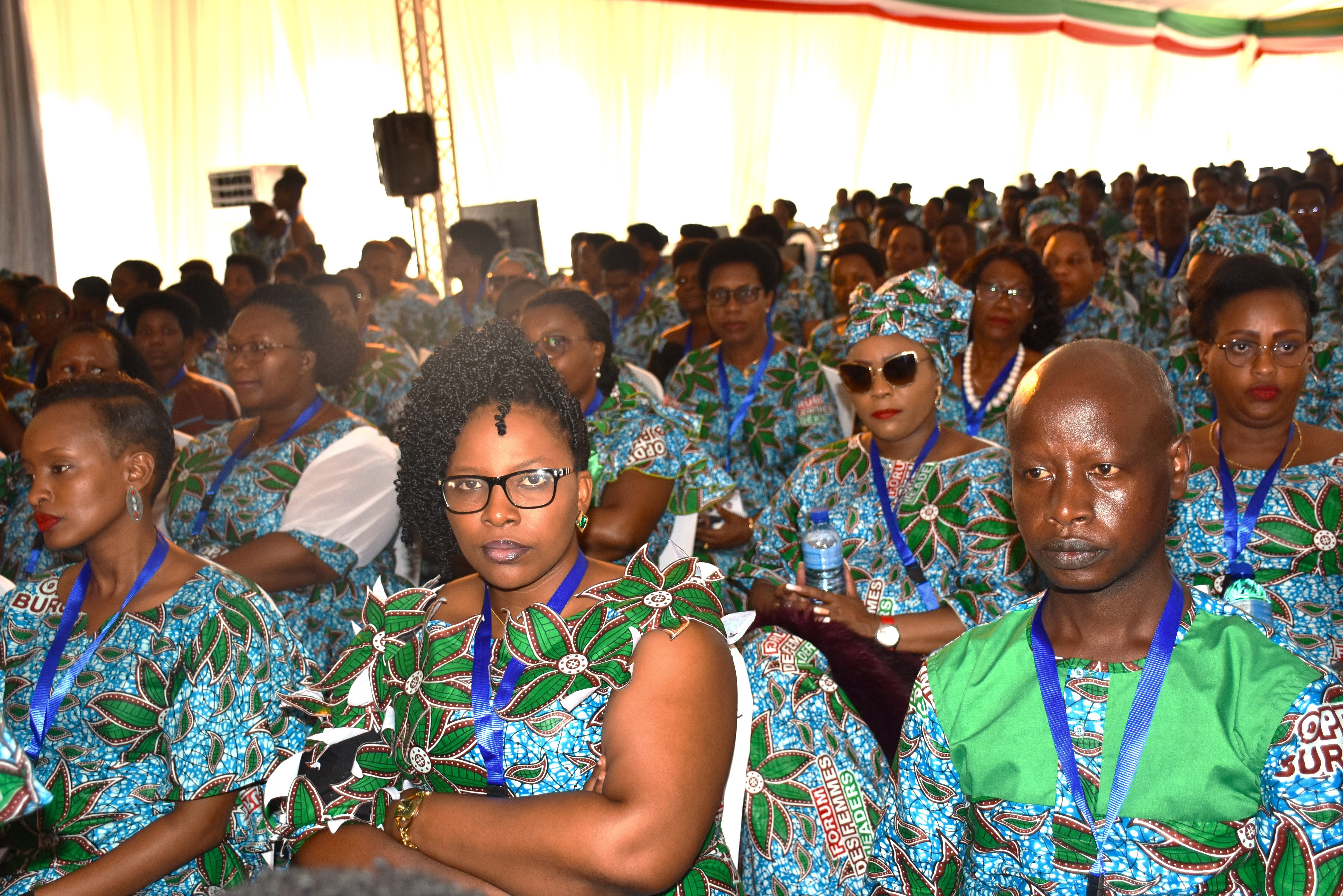
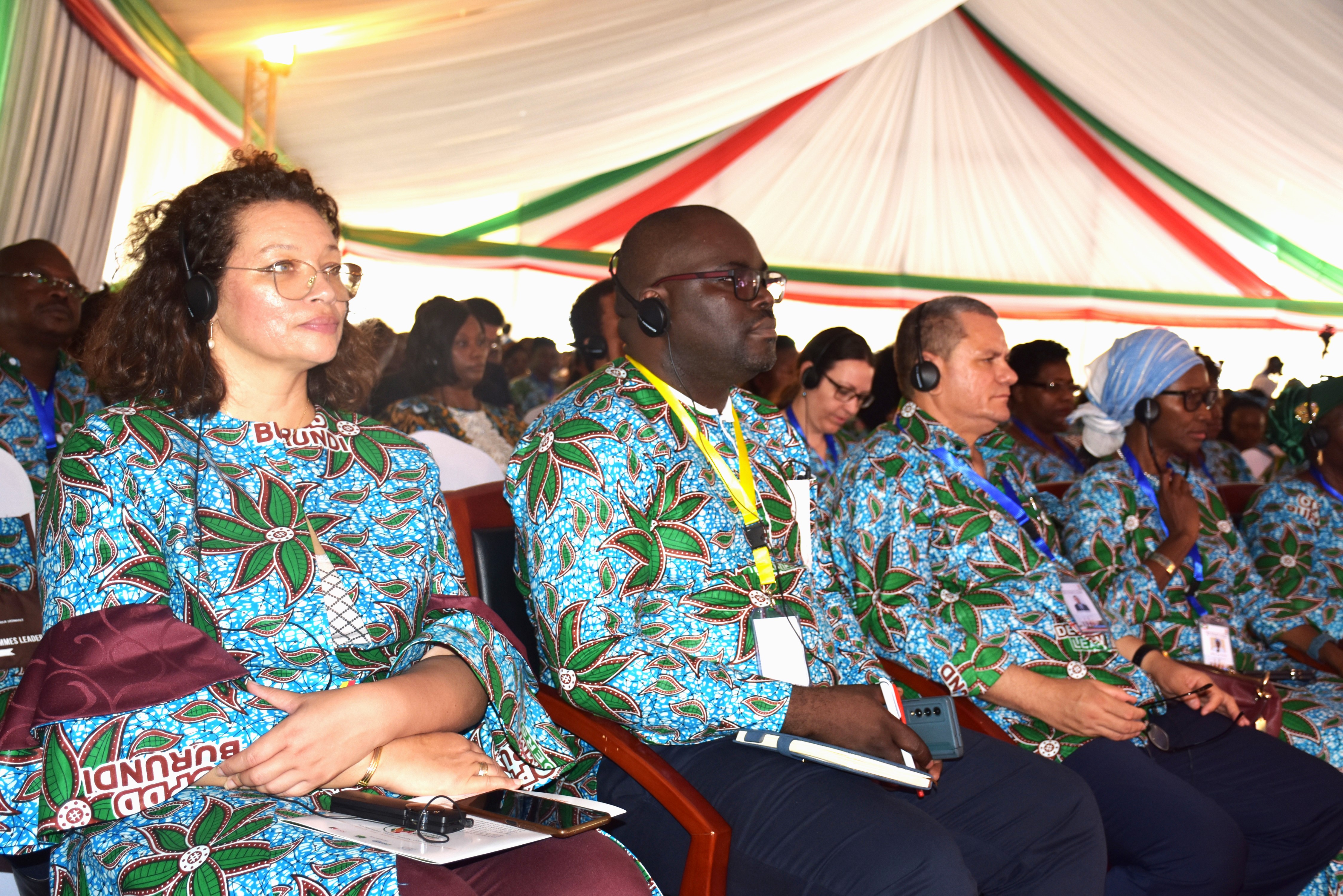
With the theme "The contribution of family planning to achieving good nutritional status and the demographic dividend", the forum was attended by distinguished guests including First Ladies of Rwanda, Kenya and Zanzibar, and delegates from several other countries and international and UN organizations, including UNFPA Burundi. The Prime Minister, various ministers and women leaders from all spheres of the country and other distinguished guests were also present at this forum, which was the 4th edition. With a common voice, these women leaders came together under the following slogan: "Women Leaders, let's be champions of family planning, the key to socio-economic well-being".
"If Burundi is to achieve its vision of becoming an emerging country by 2040 and a developed country by 2060, it is imperative that population growth be brought under control, and women leaders must play an essential role", said Burundi's First Lady. For Angeline Ndayishimiye, the increased use of family planning should help to considerably boost the achievement of good nutritional status and the demographic dividend in Burundi.
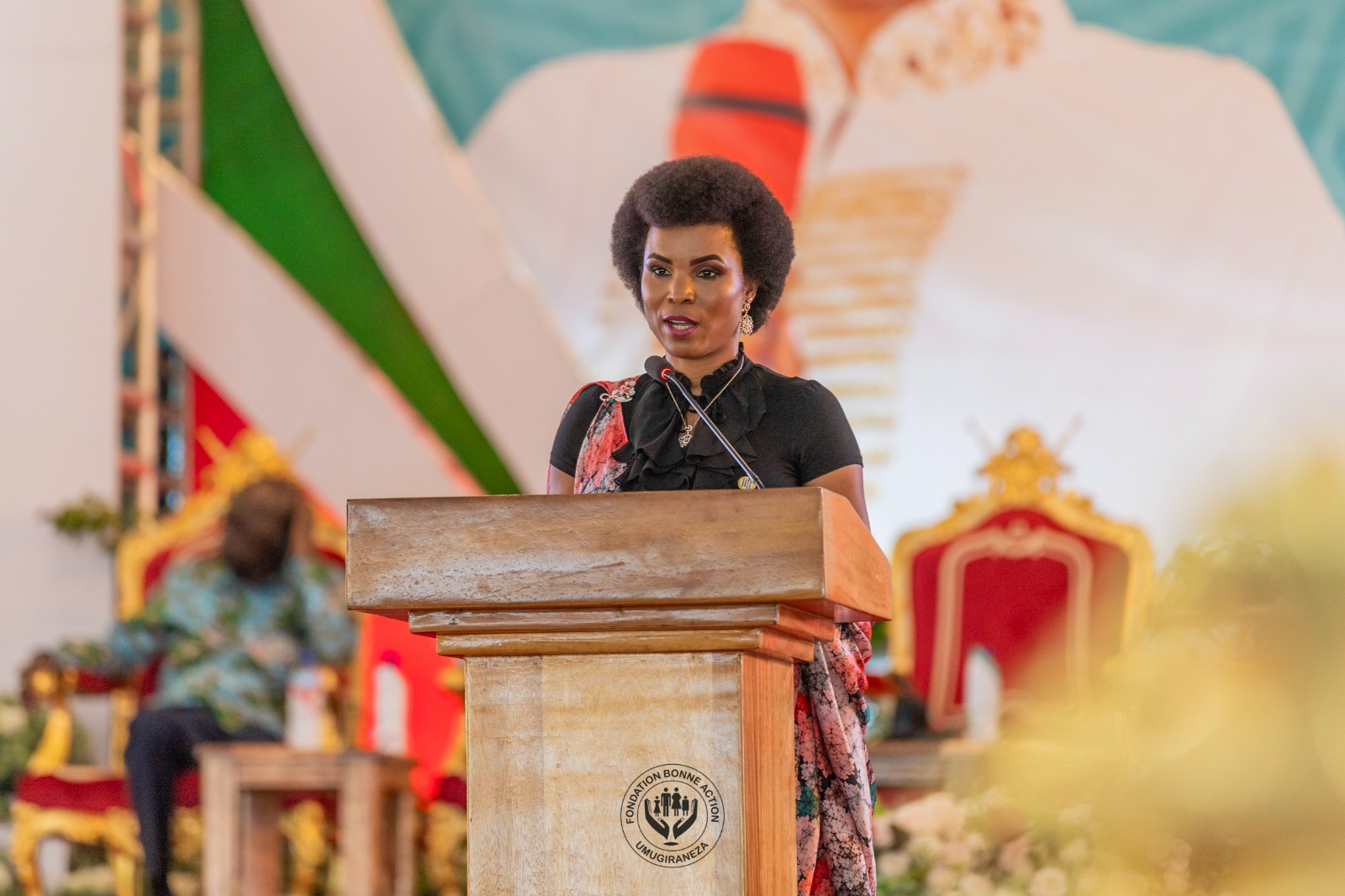
"In Burundi, we already have 430 inhabitants per km2, which is proof enough that we are overpopulated, and the situation will become even more serious if nothing is done". This is according to the Prime Minister on behalf of the President of the Republic of Burundi. Gervais Ndirakobuca hammered home the point that Burundi's galloping demography is already at the root of a number of ills, such as land disputes due to limited space, overcrowded school classrooms that make it difficult for children to learn, the daily preoccupation with food rations that hampers the country's economy, and so on.

Participants had the opportunity to explore the close links between family planning, nutrition and the demographic dividend, and to debate effective strategies for promoting these key areas. Various themes were addressed in panel discussions and presentations, including the interrelationships between family planning, food security, nutrition and demographic dividend; family planning and population control in Burundi; the main determinants and challenges of family planning and population control in Burundi; the involvement of men as a key to good nutrition and effective family planning; intergenerational dialogue on the promotion of sexual and reproductive health; the contribution of women leaders in accelerating progress towards achieving a good nutritional status and the demographic dividend through increased use of family planning, not forgetting the testimonies, exchanges and songs around the theme of the forum that were shared.
Abdou Dieng, Resident Coordinator of the United Nations System in Burundi, pointed out that Burundi's population has tripled over the past 4 decades. It is therefore necessary to draw up strategies and policies to control demographics, otherwise there is a risk that they will lead to the deterioration of natural resources and infrastructures. For his part, Judicaël Elidje, UNFPA Resident Representative, shared in one of the panels that the objective is to make this population an asset and not a challenge.
Counting on the leadership and commitment of women in society, the First Lady, in her closing remarks, called on women leaders to take the lead as ambassadors in raising awareness of family planning and nutrition in order to help achieve the demographic dividend. She also took the opportunity to stress the responsibility of parents to educate their children responsibly about their sexual and reproductive health. It should be noted that men were also invited to adopt a positive masculinity in order to support women in promoting family planning to achieve good nutritional status and the demographic dividend.
Over the three days, an exhibition stand was set up where UNFPA also raised awareness of the promotion of voluntary family planning and its importance for family development.
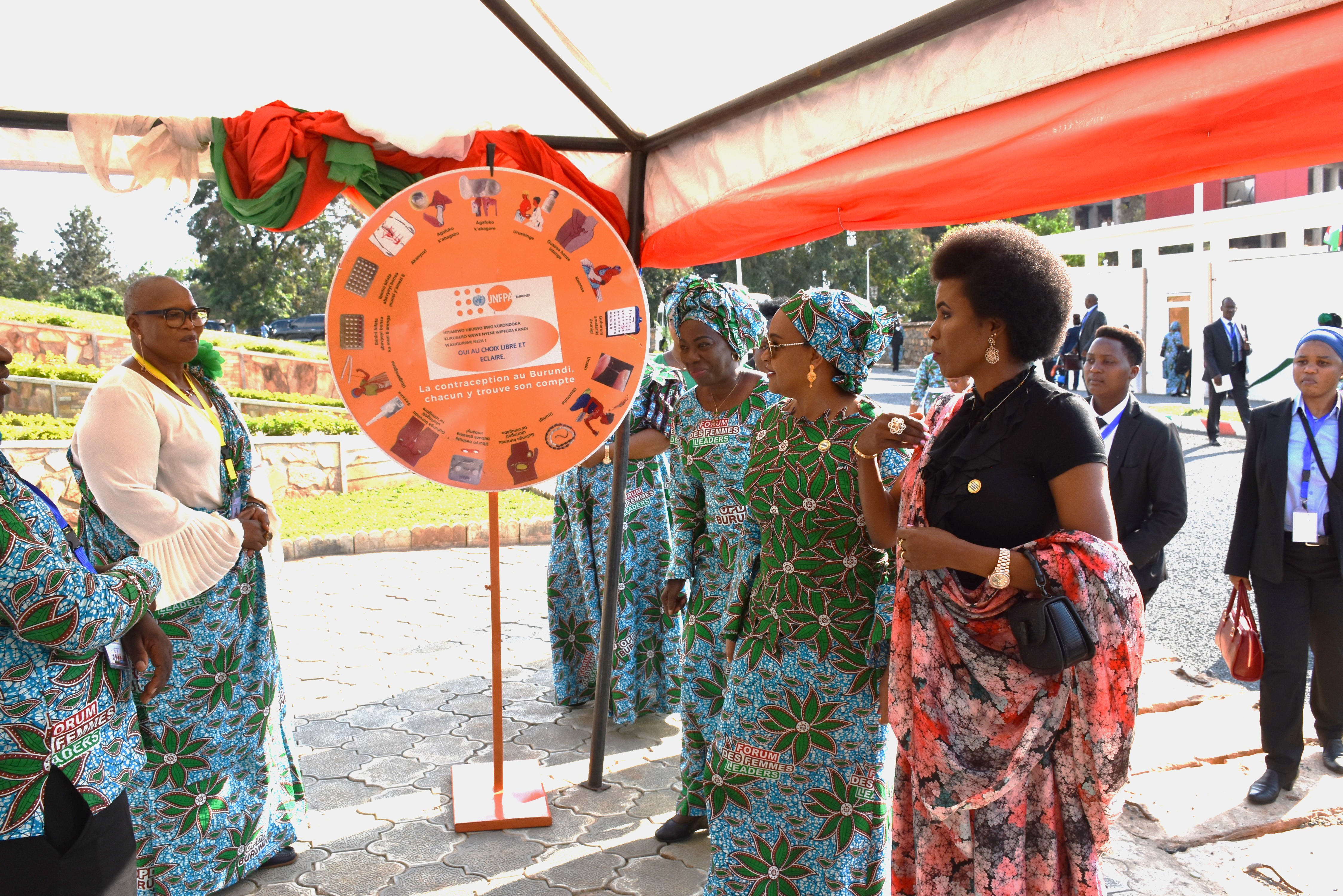
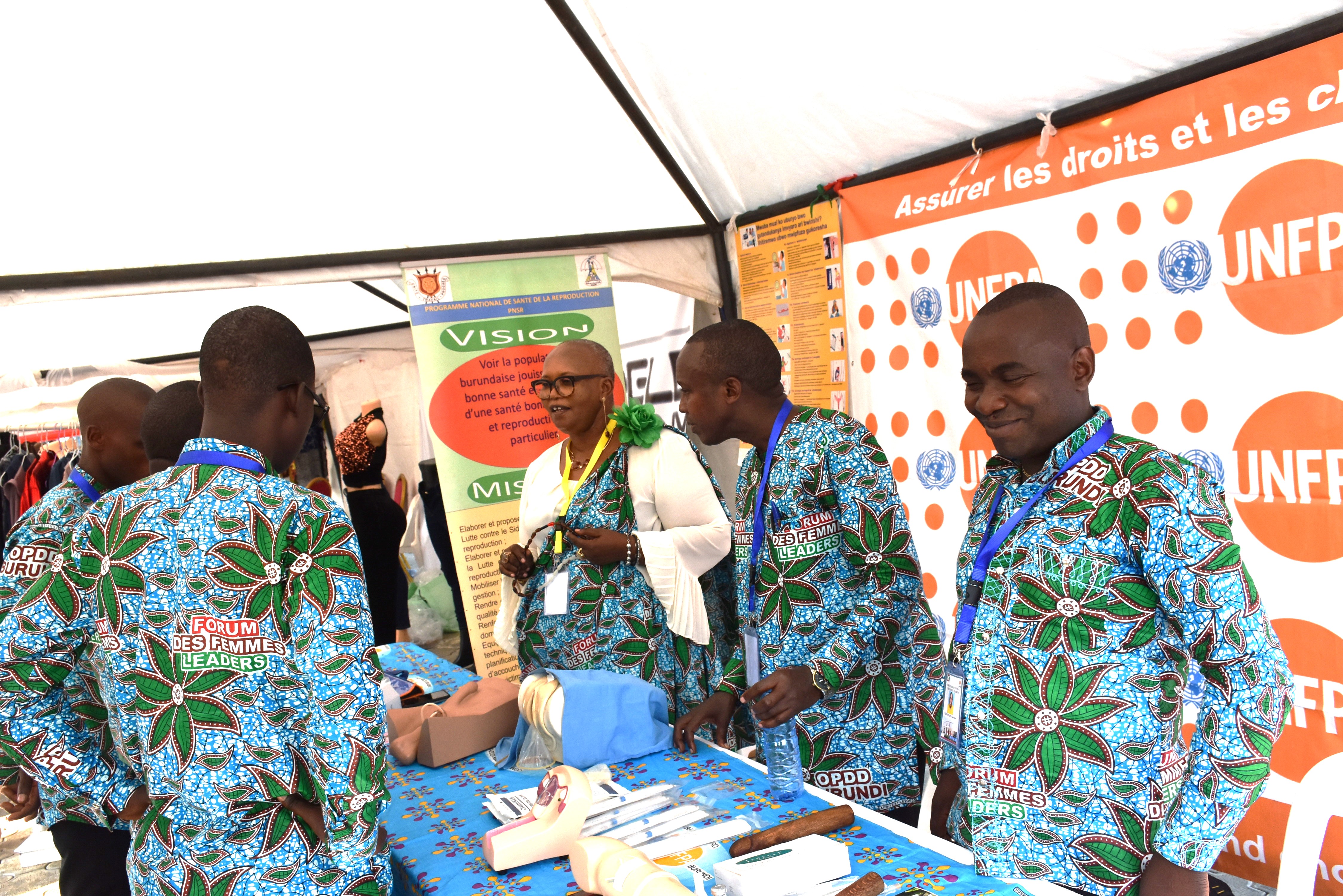
By Queen Belle Monique Nyeniteka

